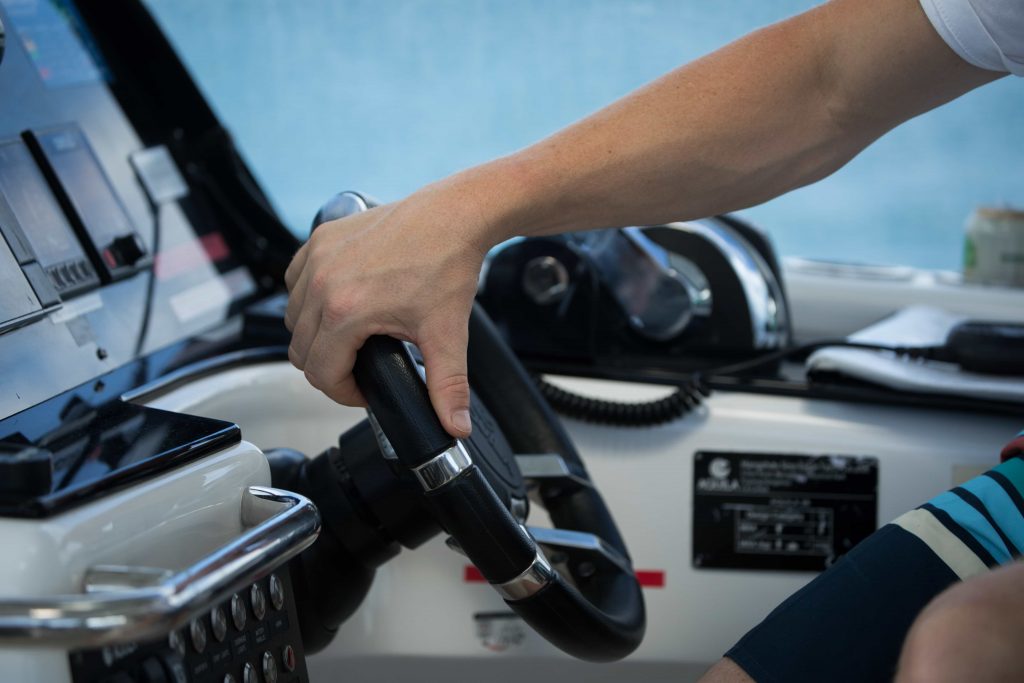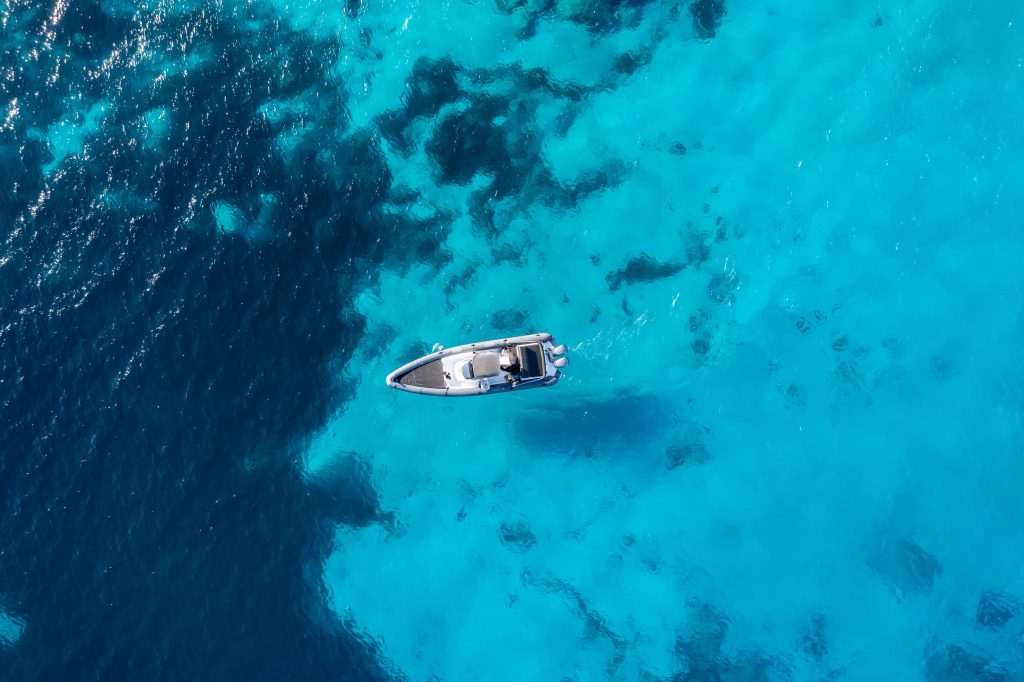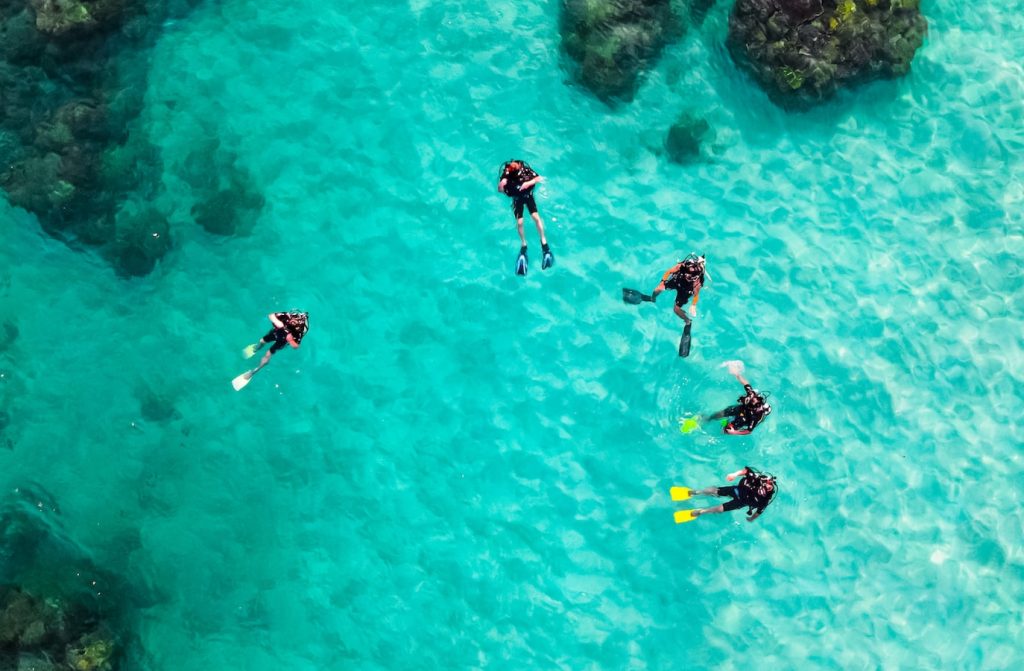
Are you looking to embark on a lifetime sailing experience through the enchanting Greek waters? Chartering a yacht is the only way to indulge in freedom, luxury and unparalleled landscapes, whatever your holiday theme is. The option allows you, your family or your friends to have a great time enjoying the beautiful scenes of the best Greek islands in privacy and at your own pace. But before going aboard on your sailing adventure, it’s crucial to familiarize yourself with the necessary prerequisites for operating a yacht with the most frequently asked question being: Do you need a license to drive a yacht?
The Greek regulations stipulate that, yes, a license is required to operate a yacht in Greek waters. However, there are important distinctions to consider between the licensing requirements for motorboats and sailing yachts as you can charter a motorboat from a boat rental company without a license as long as it is a small vessel up to 30 HP. If you possess a sailing license issued by any European Union country, it is automatically valid and accepted in Greece. Non-EU licenses, on the other hand, can only be accepted if they meet EU standards. Therefore, it’s important to note that licenses issued in languages other than English or Greek must be translated.
Obtaining a motorboat license in Greece means completing a sailing course that includes both theoretical and practical training. There is a variety of yacht clubs across the country offering such courses, which can be tailored to various levels of expertise designed to provide comprehensive training, covering both theoretical knowledge and practical skills required for operating a yacht. During the training course, you will learn the basics such as navigation rules, safety procedures, handling different weather conditions, basic yacht maintenance, and emergency protocols. The theoretical component ensures that you have a solid understanding of key concepts, while the practical training allows you to apply your knowledge on the water under the guidance of experienced instructors. When you successfully complete the course, you must take the exam conducted by the relevant authorities, such as the Hellenic Coast Guard. This examination evaluates their theoretical knowledge and practical skills in navigation, safety regulations, and general seamanship. It may include tasks such as plotting courses, demonstrating maneuvering techniques, and responding to simulated emergency situations. This way, potential captains are ensured to have the necessary competence and understanding to safely operate a yacht in Greek waters. Needless to stress the importance of approaching the examination with thorough preparation and study, as it serves as a final assessment of one’s abilities before obtaining the license. Also, do note that extensive boating experience does not qualify you as licensed a yacht captain!
In addition to completing the required training and passing the exam, there may be other prerequisites for obtaining a sailing license in Greece such as a minimum age requirement. It is advisable to inquire about the specific requirements from the licensing authority or the training center where you plan to take the course.
Here are some additional tips to help you in the process of acquiring a sailing license:
- Take the time to research reputable yacht clubs and training centers that offer recognized courses in Greece. Look for institutions with experienced instructors and a solid curriculum.
- Gain as much practical experience as possible by participating in boating trips, crewing on yachts, or practicing with experienced sailors. This hands-on experience will complement your training and boost your confidence on the water.

Once you have acquired your yachting license, you are ready to navigate with confidence and ensure the safety of everyone on board by adhering to the regulations. However, there are a few more essential aspects to consider before setting sail in Greece.
Firstly, take the time to research and consult local authorities who can provide valuable information and guidance specific to your sailing adventure. They can offer insights into current regulations, potential updates, and any local nuances you should be aware of. One crucial aspect is understanding the anchoring regulations which apply to Greek waters. Some areas may have restrictions due to environmental protection or archaeological sites. Knowing where and how to anchor properly will help you avoid any unintended violations and respect the natural and cultural heritage of the region. Additionally, being knowledgeable in safety procedures is of utmost importance. Ensure you understand the required safety equipment, emergency protocols, and the location of onboard safety resources. This preparation ensures the well-being of everyone on board and allows you to handle any unforeseen situations effectively.
Don’t forget to check that your vessel’s documentation is up to date and complies with Greek regulations. Carry all necessary documents, such as registration papers and proof of liability insurance, to avoid any potential legal issues during your journey.
Lastly, familiarize yourself with local laws and restrictions that may affect your activities, such as fishing regulations or limitations on water sports. Respecting these regulations ensures a harmonious experience and promotes responsible boating practices.
Consider these parameters carefully and integrate them into your preparations so that you can navigate the Greek waters confidently, knowing that you are well-informed, compliant with regulations, and dedicated to ensuring a safe and enjoyable yachting experience for everyone on board.



